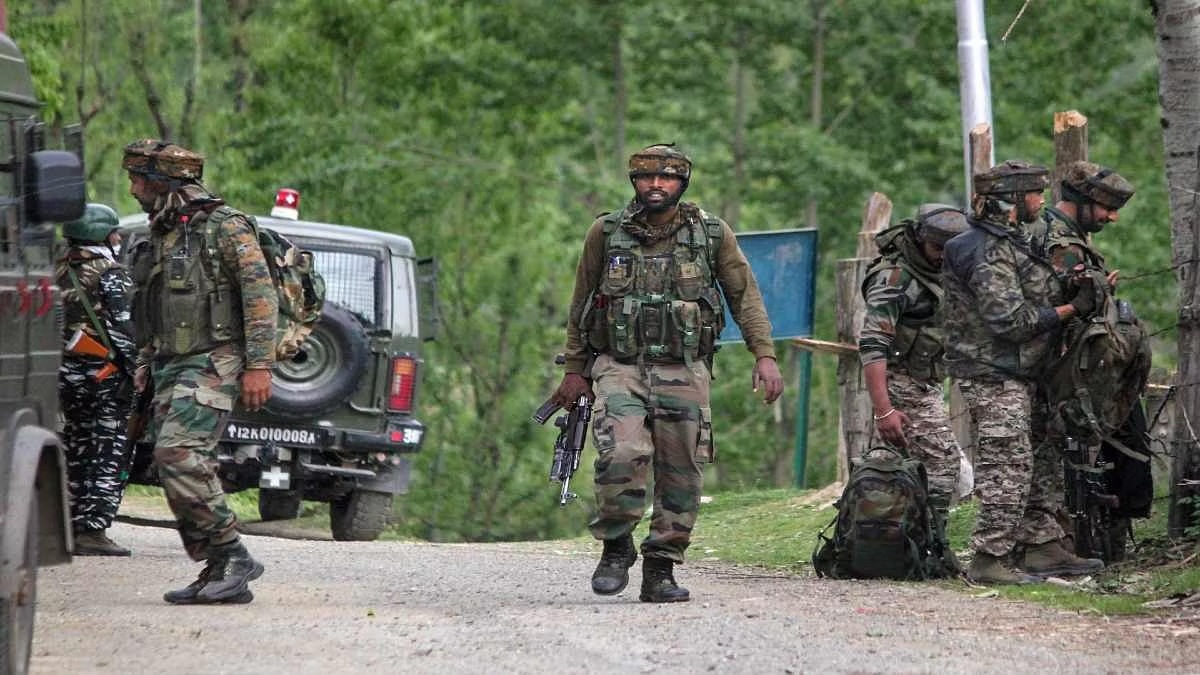 |
|
The ongoing conflict in Jammu and Kashmir continues to claim lives, as evidenced by the recent encounter in Sopore that resulted in the death of a soldier. This incident underscores the persistent security challenges faced by the region and highlights the complex dynamics at play. The encounter, which began late on Sunday night, involved security forces raiding a suspected militant hideout. This proactive measure, aimed at disrupting terrorist activities and apprehending those responsible for violence, unfortunately led to a violent confrontation. The militants, entrenched in their hideout, retaliated with gunfire, initiating a firefight that lasted for several hours. The intensity of the exchange suggests a level of preparedness and determination on the part of the militants, indicating a well-established network and potentially sophisticated operational capabilities. This raises concerns about the effectiveness of current counter-terrorism strategies and necessitates a thorough review of intelligence gathering and operational protocols.
During the intense gun battle, a soldier sustained critical injuries. Despite being rushed to the 92 Base Army Hospital for emergency medical attention, the soldier succumbed to his wounds. This tragic loss is a stark reminder of the risks faced by security personnel in the line of duty, constantly confronting threats and working to maintain peace and stability in a volatile environment. The death of the soldier serves as a somber testament to the sacrifices made by individuals committed to protecting their nation. The incident also highlights the need for improved protective equipment, tactical training, and strategic planning to minimize casualties and enhance the safety of security personnel involved in such high-risk operations. Public expressions of gratitude and support for the fallen soldier and their family are essential, acknowledging the profound impact of such losses on both the individual and the larger community.
Following the encounter, security forces established a tight cordon around the Zaloora Gujjarpati area, effectively sealing off the region to prevent any escape attempts by the remaining militants and to ensure the safety of civilians. The cordon and search operation, entering its second day, involves a meticulous search of the area to eliminate any further threat and ensure the complete neutralization of the terrorist cell. This operation requires significant resources, including manpower, technology, and logistical support. The thoroughness of the search is crucial, not only to apprehend any remaining militants but also to gather intelligence, seize weapons and explosives, and prevent future attacks. The use of specialized units and advanced technologies underscores the seriousness of the situation and the determination to eliminate the threat.
The incident in Sopore once again brings into sharp focus the complexities of the security situation in Jammu and Kashmir. The ongoing insurgency, fueled by various factors including political grievances, ideological differences, and cross-border support, poses a significant challenge to peace and stability in the region. Efforts to address the underlying causes of the conflict are crucial for achieving long-term peace. This includes addressing socio-economic disparities, fostering inclusivity, promoting dialogue, and tackling the root causes of extremism. International cooperation is also critical in tackling cross-border terrorism, sharing intelligence, and coordinating efforts to disrupt terrorist networks. The situation in Sopore is a stark reminder of the continuing need for vigilance, proactive counter-terrorism strategies, and a holistic approach to address the underlying issues that fuel conflict in the region. The pursuit of peace and stability requires not only military efforts but also a comprehensive strategy that addresses the social, economic, and political aspects of the conflict.
Source: Soldier killed in encounter with terrorists in Jammu and Kashmir's Sopore
